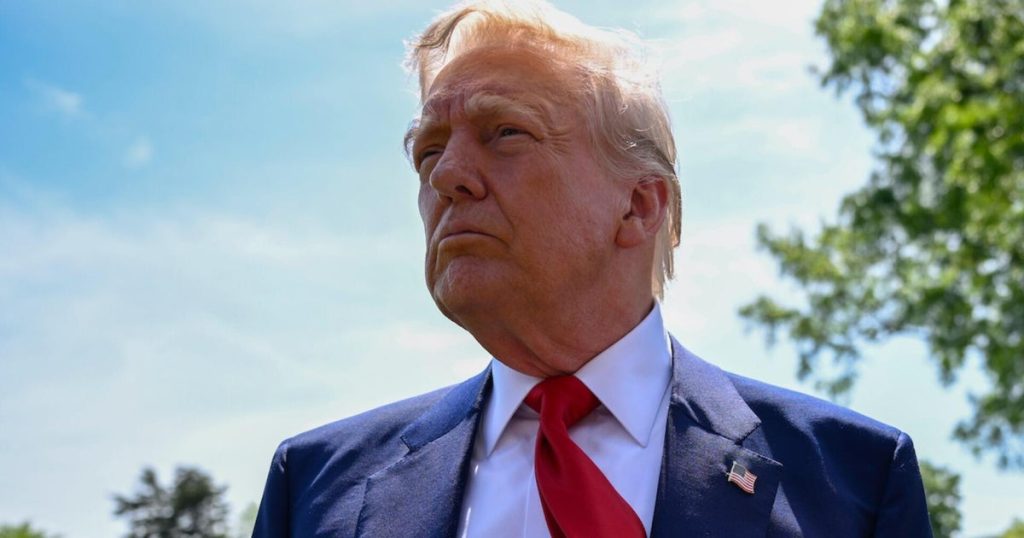In a significant policy shift, the proposed budget for fiscal year 2026 introduced by President Trump aims to cut non-defense discretionary spending by 22% while simultaneously increasing defense funding beyond $1 trillion for the first time. Senior officials from the Office of Management and Budget outlined these changes during a recent conference call, emphasizing a historic effort to reform government bureaucracy through initiatives led by the Department of Government Efficiency (DOGE). With this budget proposal, the Trump administration seeks to address long-standing federal spending issues while relying on a Republican-controlled Congress to finalize the details.
| Article Subheadings |
|---|
| 1) Overview of Budget Cuts |
| 2) Defense Spending on the Rise |
| 3) Impact on Federal Agencies |
| 4) Cuts to Foreign Aid and Social Programs |
| 5) The Role of Congress in the Budget Process |
Overview of Budget Cuts
The proposed budget unveiled by President Trump indicates a dramatic cut in non-defense discretionary spending, totaling a reduction of $163 billion. This figure represents a 22% decrease from the current fiscal year’s allocation, bringing total discretionary spending down to $1.7 trillion, which is the lowest figure since 2017, even more historically low when adjusted for inflation. Such measures have been framed as necessary fiscal discipline by administration officials, reflecting a strong trend toward reducing federal bureaucracy. The push for budget cuts seeks to streamline government operations and address what the administration describes as a long-entrenched bureaucracy at odds with taxpayers’ interests.
Defense Spending on the Rise
In contrast to the significant cuts in non-defense areas, defense spending is poised for a notable increase of 13%, exceeding $1 trillion for the first time in history. This allocation highlights the administration’s priorities regarding national security and military preparedness. A senior official elaborated that this monumental budget reflects an ongoing commitment to strengthening the military in the face of global challenges, reinforcing the administration’s narrative of prioritizing defense over other governmental expenditures. Not only does this shift signal a robust approach to defense but it also suggests a clear divergence in spending priorities compared to previous administrations.
Impact on Federal Agencies
Under the proposed budget, agencies are projected to experience cuts averaging around 35%. However, exceptions exist; for instance, the Department of Homeland Security may see an increase in its budget. Conversely, crucial departments like the State Department and the Department of Health and Human Services are anticipated to face considerable reductions. This entrenchment of cuts reflects a broader strategy to reallocate resources within the federal landscape, ostensibly to reimagine government efficiency. The cuts challenge agencies to reassess their operational priorities and effectiveness moving forward.
Cuts to Foreign Aid and Social Programs
The budget proposal reveals a substantial reduction in foreign aid, although the administration has insisted that “targeted” aid will still be available in situations deemed critical for U.S. interests. Such a shift effectively marks a pivot away from traditional foreign assistance models, aiming instead to focus budgetary resources domestically while engaging selectively on the global stage. Meanwhile, longstanding social programs like Social Security, Medicare, and Medicaid remain significant contributors to the growing federal deficit. While these programs continue to consume an ever-increasing slice of the federal spending pie, the proposed cuts signal a stark approach to managing national fiscal health amid rising national debt.
The Role of Congress in the Budget Process
As the president’s budget recommendation makes its way to Congress, the Republican-controlled legislature will play a critical role in shaping the final budget outcome. The process typically involves negotiations and discussions among lawmakers to align spending priorities with the budgetary framework proposed by the executive branch. A senior administration official highlighted the intense involvement of the president in this budget formulation phase, indicating that lessons learned from prior budgets and the perceived fiscal mismanagement of previous administrations have greatly influenced this proposed fiscal policy. Consequently, the responsibility lies with Congress to forge a budget that reflects both the president’s proposals and broader legislative consensus.
| No. | Key Points |
|---|---|
| 1 | Proposed cuts of 22% to non-defense discretionary spending amounting to $163 billion. |
| 2 | Defense spending to exceed $1 trillion, marking a historic increase of 13%. |
| 3 | Federal agencies to experience cuts averaging around 35%, with some exceptions. |
| 4 | Significant reductions in foreign aid while maintaining targeted support for U.S. interests. |
| 5 | Congress holds the power to finalize the budget, relying on negotiations with the executive branch. |
Summary
The proposed budget for fiscal year 2026 marks a significant shift in federal spending priorities, reflecting a commitment to reducing non-defense expenditures while bolstering defense funding. These changes aim to address deeply rooted fiscal challenges under the current administration’s direction. As discussions in Congress unfold, the final budget outcome will hinge significantly on negotiations and political dynamics, indicating a crucial moment for the federal budget landscape.
Frequently Asked Questions
Question: What major changes does the proposed budget include for defense spending?
The proposed budget includes a significant increase in defense spending, anticipated to exceed $1 trillion, marking a historic rise of 13% over previous allocations.
Question: How will the proposed budget impact federal agencies?
Federal agencies are expected to face cuts averaging about 35%, although some agencies, like the Department of Homeland Security, may receive increased funding.
Question: What role does Congress play in the budget process?
Congress is responsible for crafting and passing the budget, and will engage in discussions and negotiations to finalize the details proposed by the president.


